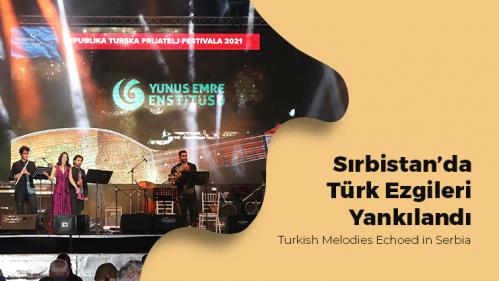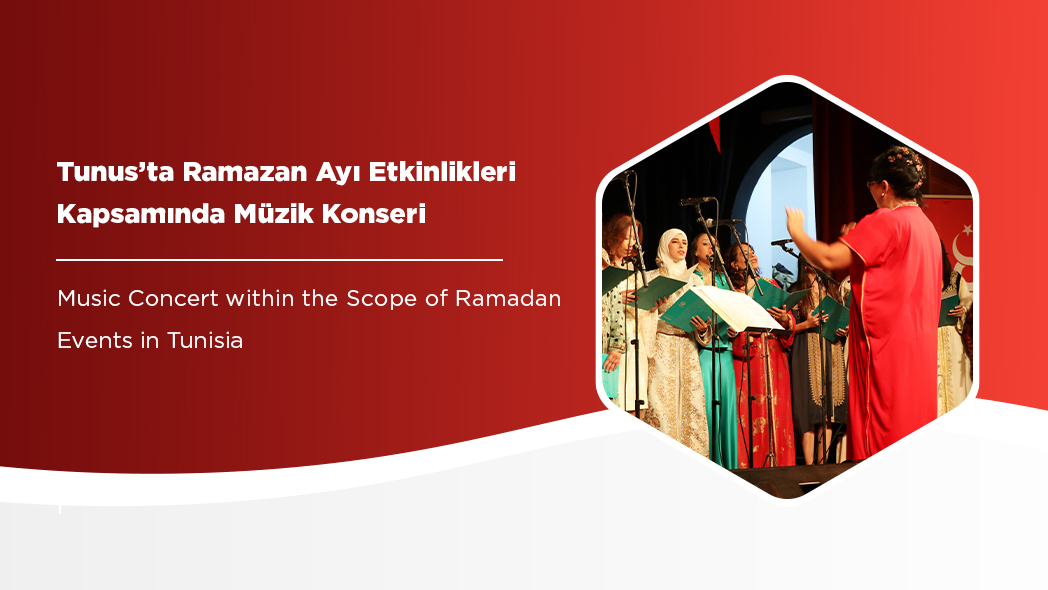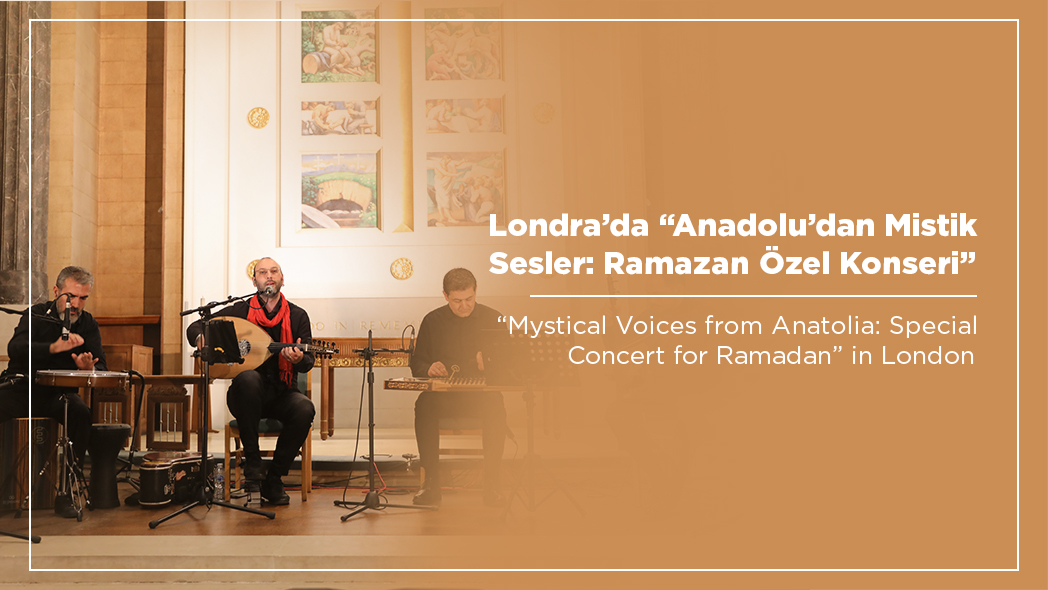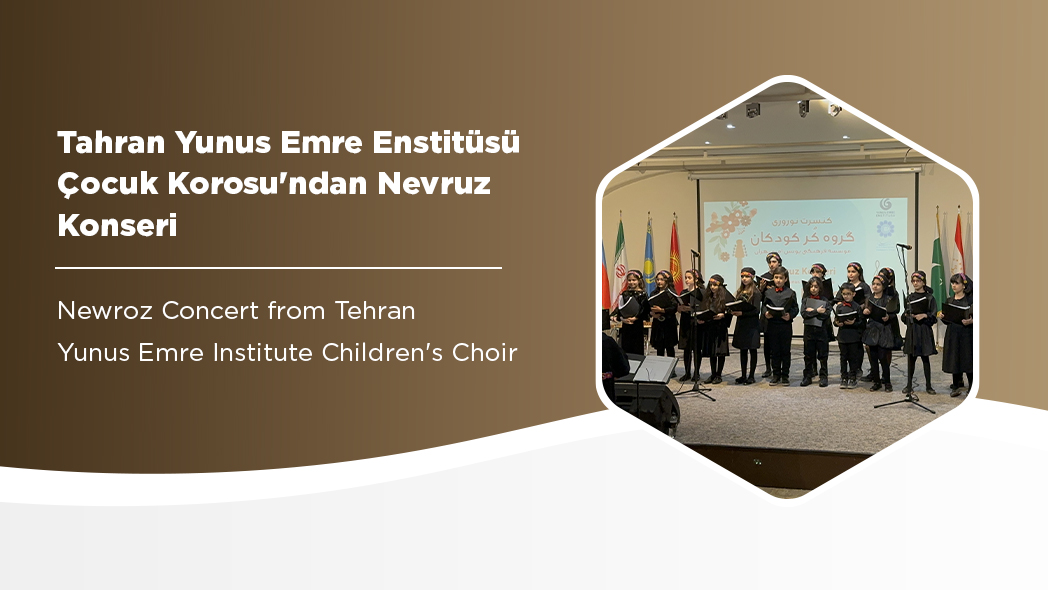Turkish Melodies Echoed in Serbia
Tamburica Fest, organized every year traditionally in the city of Novi Sad in Serbia, was held for the first time with the contributions of Yunus Emre Institute on August 19-21, 2021. In the 14th festival, where Turkey was the guest of honor, Anadolu Nefesli Beşlisi (Anatolian Wind Quintet), who brought together Türkü compiled of the rich traditional music of Anatolia, and the sayings of troubadours with the instruments of classical music, was the lead guest music band. Many other musicians from Brazil, Romania, Northern Macedonia, Slovenia, Bosnia and Herzegovina, Croatia and Serbia performed besides the Turkish musicians during the concert held at the Petrovaradin Castle in Novi Sad, the European Capital of Culture of 2022.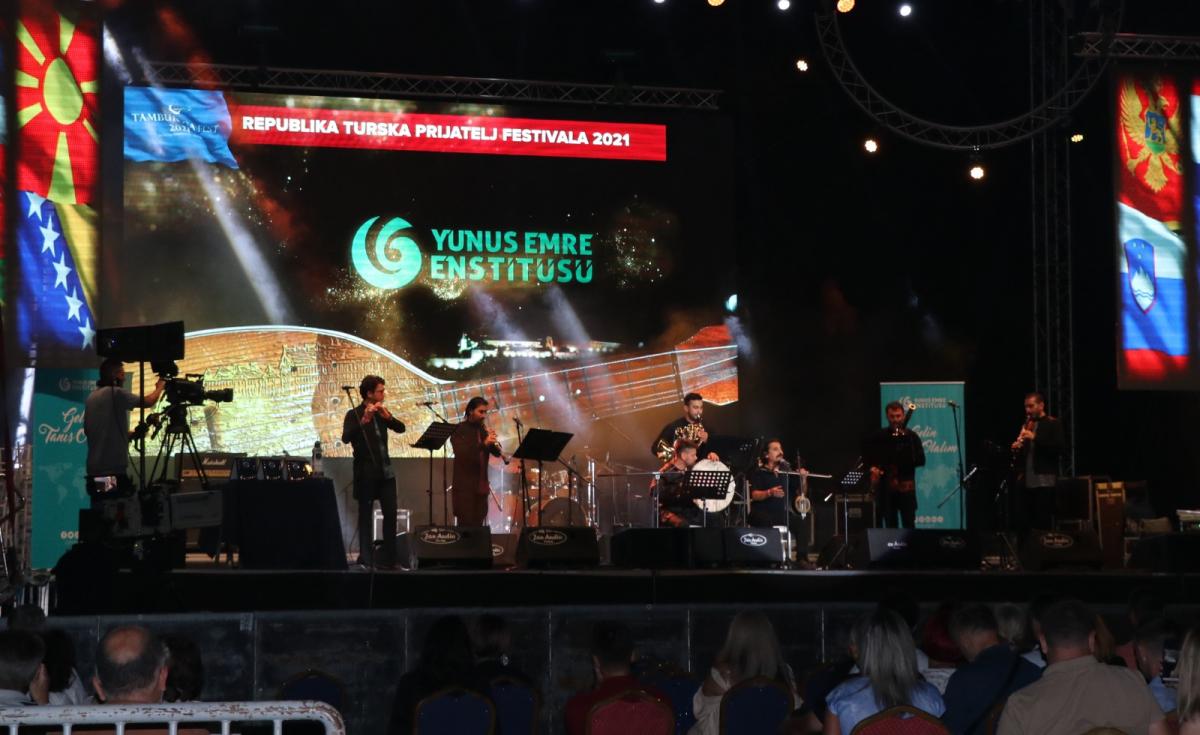
Tamburica Fest, the largest international ethnic music festival of the Balkans, started with the traditional coach procession, trumpeter parade and folk-dance performances in the streets of Novi Sad.
The last two days of the festival were held at the Petrovaradin Castle, where Anadolu Nefesli Beşlisi met with the music lovers on Friday, August 20, 2021.
This year's festival also hosted the Macedonian guitar virtuoso Vlatko Stefanovski, who has world renowned ethno-rock jazz fusion compositions, the Serbian folk musician Sasha Matic, and many other prominent musicians and music bands.
TAMBURICA MUSIC INTRODUCED TO THE WORLD
Tamburica Festival has been organized since 2008 to introduce to the world the tamburica music, which has an important place in Balkan music, and the tamburica (the Balkan tambour), a musical instrument of the tambour family. Festival contributes greatly to the permanence of the musical tradition of tamburica and aims to strengthen the international bonds of friendship and cooperation between musicians.
Orchestras from all around Serbia and various parts of the world participated in the contests organized in different categories within the scope of the festival. New compositions, songs composed with tamburica music and performances of famous musicians can be found at the festival, in which a country is selected as guest of honor every year.
During our interview with Anadolu Nefesli Beşlisi music band before their concert, we discussed the band's founding, how they combined the melodies of Anatolia with the Western music, and their "Yunus Emre" projects.
Could you talk about the founding story of Anadolu Nefesli Beşlisi?
Before Anadolu Nefesli Beşlisi was founded, Cem Önertürk and Ozan Evruk were performing at concerts with similar communities. However, they could not find their desired and needed synergy and devotion. The breaking point in the foundation of Anadolu Nefesli Beşlisi was through the involvement of Ufuk Soygürbüz and the later inclusion of Kıvanç Fındıklı and Hüseyin Uçar in the community. Before the founding of the band, the members already knew each other from their studies at the conservatory. Anadolu Nefesli Beşlisi was first founded in 2014 as Tahta Nefesli Beşlisi (Wood Wind Quintet) and has become one of the most well-known and sustainable musical communities of Turkey who brings together different genres of music with various projects since 2015.
"THERE ARE NO COMMUNITIES THAT CANNOT COMMUNICATE THROUGH MUSIC"
What does Anatolian music and classical Western music mean to you?
Anatolian music is a genre of music with an enormous melodic richness that is monophonic, that is played in diverse and continuous rhythmic patterns, and that reflects the cultures and ways of livings of Anatolia. Classical Western music, on the other hand, is polyphonic. It has very complex and intricate harmonic and rhythmic patterns and has a great eloquence. Most importantly, it is a genre of music whose universality is inured. Our answer for your question regarding the meaning of Anatolian music and classical Western music is that; first, each of them is a genre of music, and we do not discriminate between the two as we handle music at in its essence. All members of our band were trained in classical Western music. However, this never prevented us from adopting other genres of music, and especially, our culture's own Anatolian music. Whichever genre of music it may be, music is a language for us, and when that language is utilized well, there can be no community that cannot be interacted with through music.
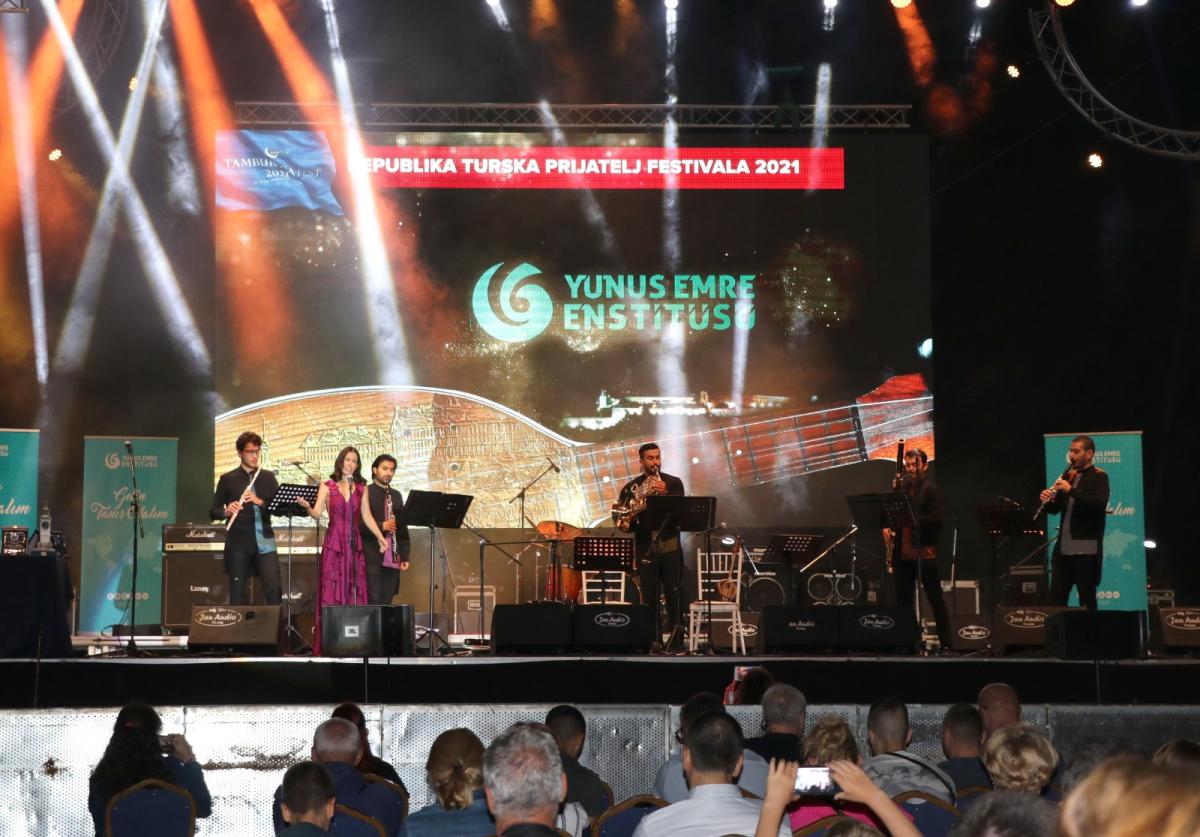
Music is a medium of communication, and at that, a medium that can be understood by everyone. At this point, we help people from other developed countries learn, understand, and have an idea about our country's culture by combining our essence, Anatolian music, and the universal classical music. If we have a look at the history of music, we will see that most composers of classical music were nourished by their countries' cultures and created their works inspired by folk songs. For us, this defines how to reach from our core to universality.
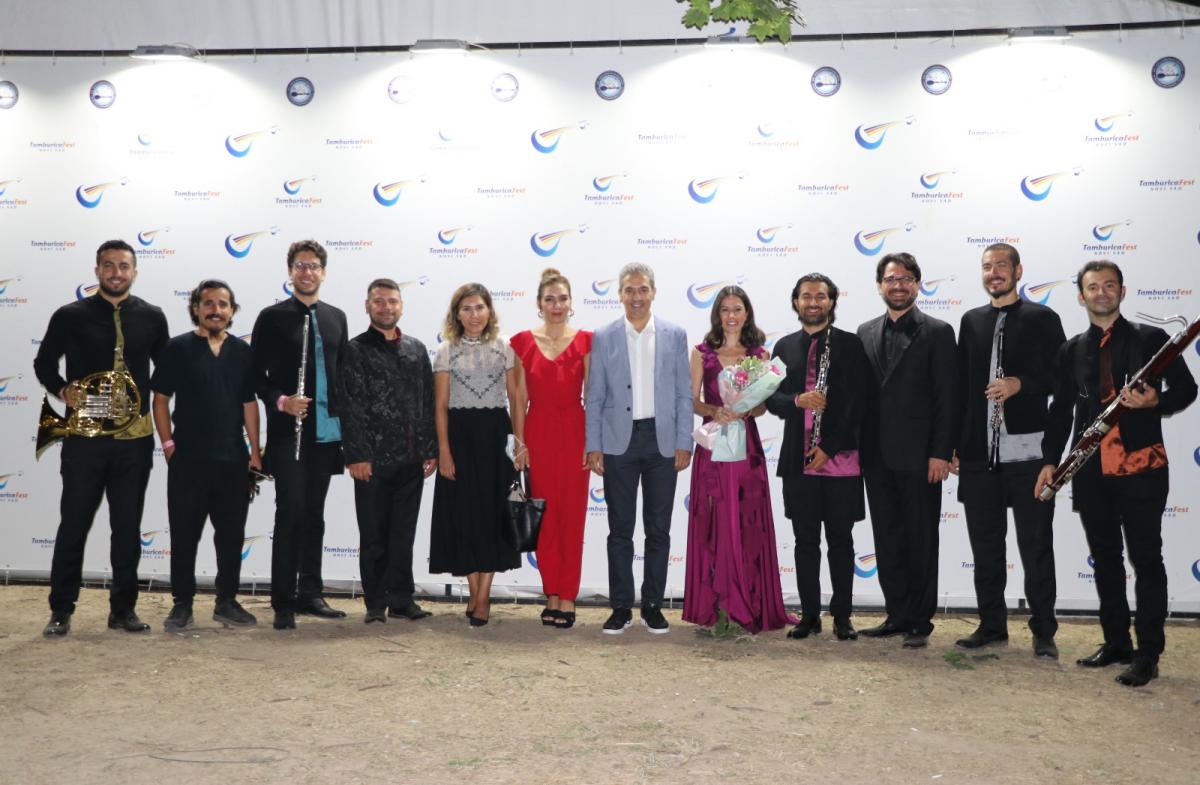
Just as Slavic, Ottoman, and Greek music, Anatolian music is also an element of the Balkan music. You have works bringing together Balkan music and Anatolian music. What kind of interactions, feelings and new musical products emerge when these two genres of music are combined with polyphonic music?
This music culture of Asian origin has been organically interlocked with each other for many years thanks to the Ottomans. Our ability to combine these cultural elements with classical music or polyphonic music is one of the greatest and indisputable achievements of the republic's musical revolution for the Turkish people. Thus, we are able to bring together these two cultures. An innovative and different aesthetic perspective is being formed in music. The cultural bond between Anatolia and the Balkans is strengthened through concert concepts, which have probably been tried very few times. Also, it reinforces our common values, which we are all aware of, and unites the people of the Balkans and Anatolia instead of separating them.
What are the future projects of Anadolu Nefesli Beşlisi?
We received great feedback from different interactions we realized until today. For our future projects, we have finalized a performance work in relation to Yunus Emre, whose Sufi music and ideas we try to reflect through instruments of Anatolian culture, but we are yet to perform it. The original music for our Yunus Emre project is composed by our clarinetist Kıvanç Fındıklı, its libretto is by our bassoonist Ozan Evruk and its cinevision images are designed by our flutist Cem Önertürk. In other words, this is a project that is entirely of Anadolu Nefesli Beşlisi production. Besides this project of ours, we are also working on projects specifically for children, which will have story or fairy tale narratives and will develop their emotions and sense of aesthetics, targeted towards their world of imagination.
You also participate in social responsibility projects. Can you speak a bit about these projects?
As a group, we find pleasure in participating in social media projects. However, since the pandemic has come into our lives, we could not participate in any social responsibility projects at all. Before the pandemic, we would go the primary schools in the cities where we perform and introduce our instruments and music to the students to contribute their education. We will continue when the conditions improve. Besides this, we performed at LÖSEV (The Foundation for Children with Leukemia) and Gazi University Hospital Pediatric Oncology Service. We see it necessary to carry out social responsibility projects and very much believe in their effectiveness and benefits. They have been an incredible source of motivation for our band...
Do you get any feedback from the children? Do you develop any projects specifically for them?
The feedback we receive from children makes us quite happy. Believe me, it is much more valuable for us to have a positive place in their lives. We sometimes wish to perform only for children. It is really worth to see their reactions to the instruments and the sounds they make. Our fairy tale project for children is also on its way...
Interview: Deniz Renkveren, Photos: Demet Akın

